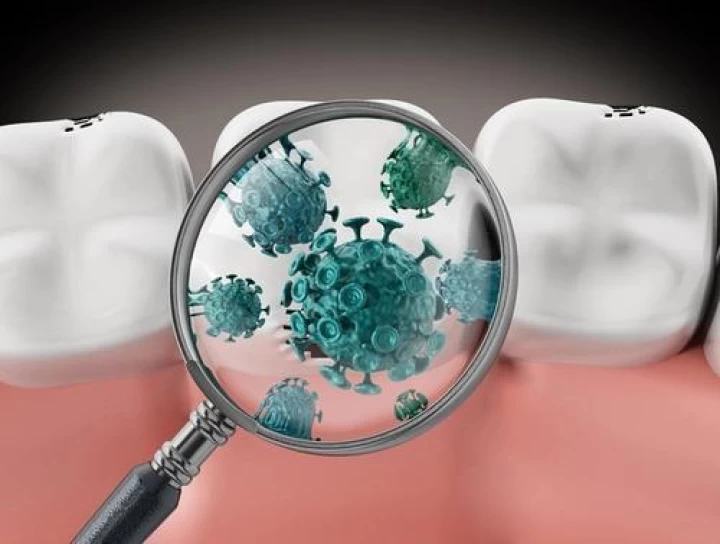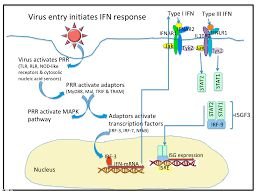



BACTERIA THAT CAUSE PERIODONTAL DISEASE REDUCE ORAL DEFENSE AND INCREASE VIRAL GROWTH
Porphyromonas gingivalis, a common oral bacterium that causes periodontal disease, has been linked to numerous other diseases, including Alzheimer's disease and rheumatoid arthritis. Recent clinical studies have shown that immune suppression in patients with periodontitis can enhance susceptibility to HIV, herpes simplex and HPV.
P.gingivalis, a Gram-negative oral anaerobe, that is involved in the pathogenesis of periodontitis and can completely suppress interferon production and severely enhance susceptibility to viral infection.
WHAT ARE INTERFERONS?
Interferons (IFNs) are the body's first line of antiviral defence.
These are the cytokines that are secreted by host cells in response to viral infection.
Interferon lambda {Type 3 IFNs} have an innate antiviral immune response and is produced by epithelial cells in the oral cavity serve to protect from viral infection. Some bacteria reduces the production and effectiveness of these important frontline defenders.
With in the oral tissues of periodontally diseased patients, overabundance of Pg as been correlated with suppressed IFN production.
Multiple virulence factors and secreted proteases produced by Pg suppressed IFN promoters and also cleaved IFN receptors, making cells refractory to exogenous IFN and inducing a state of broad IFN paralysis.
The oral cavity is a gateway for viruses that infect GIT and lungs such as SARS-CoV-2, Human immunodeficiency virus (HIV), Herpes simplex and cancer-causing viruses such as human papillomavirus (HPV).
Hence, Improved understanding of how interferons provide broad antiviral protection and activate antiviral genes to protect people from viruses, as well as how P. gingivalis compromises their protection and make host more prone to viral infections, has led to clinical approaches that helps us increase protection against it.


No Any Replies to “How oral bacteria suppress protection against viral growth.”
Leave a Reply